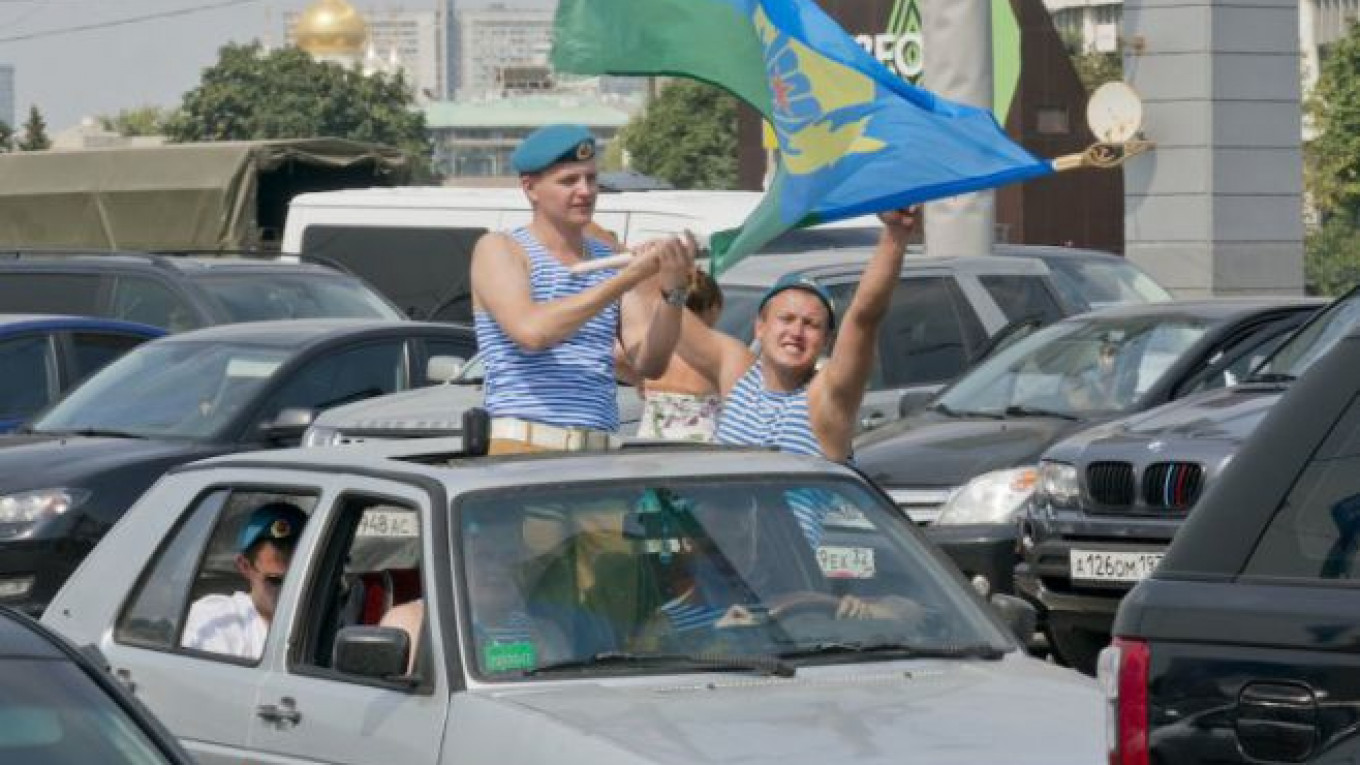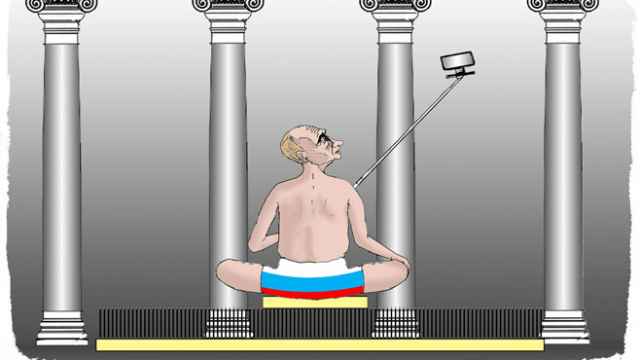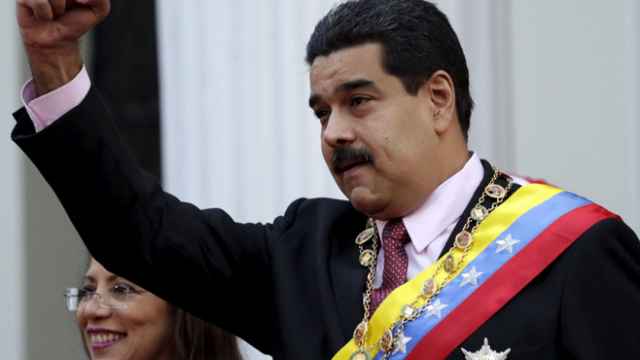The big news of the past week happened a year ago — July 17 was the first anniversary of Malaysia Airlines flight MH17 being shot down over the rebel-held territory of eastern Ukraine.
But the sole highlight of the sad date was a Russian proposal to blow up another Boeing to prove that Russia did not blow up the first one. Moscow has also been fighting to block any international probes into the incident, while the Dutch investigation — the Dutch lost 196 people on that plane — rumbled on with no regard for set dates.
Leaks from the Dutch probe blame, predictably, Russia, which still insists the Ukrainians did it in at least three unrelated ways. And just this week presidential spokesman Dmitry Peskov said that Russia's proposed ban on Dutch tulip imports has no relation to the investigation, too.
At this point even the most innocent souls would surmise a tacit dead-children-for-flower profits scheme offered by the Kremlin, but Peskov cannot be lying, and besides, Russia is completely dependent on Dutch tulips for its Victory Day celebrations, and no Russian government can allow a flowerless Victory Day. Anyway, Moscow only blocked those UN probes because it wants the best investigation possible, and we know how good the Investigative Committee is at that.
But the week was really about beauty, not death — beauty dangerous, forbidden and misunderstood.
Save the Paratroopers
The latest plan to make fun of gays backfired quite spectacularly. The authorities in the northern city of Arkhangelsk quipped recently that they would allow a gay pride rally on Aug. 2, Paratroopers Day. You know, the most annoying holiday of all, when civilians stay indoors while burly reservists drink in the streets, smash bottles over their heads (with varying results), swim in fountains — someone dumped a handful of rubber ducks into the Gorky Park fountain in 2013 to stop them — and generally harass the population.
Well, an LGBT group did apply for a 100-strong gay pride parade on Paratroopers Day. Reports say the local authorities are puzzled and looking for a way to ban it anyway. And well they should. Even the hitherto-desired outcome — mass beatings — would look less nice in reality than it does in homophobic jokes. But there are other ways to spoil the party: For example, what if only lesbians rally — would the knightly brotherhood of Russia's defenders beat up a bunch of girls?
Also, the Russian stereotype of a gay person is an effeminate, slim-trousered man with lipstick. But gays, being people, come in all shapes and sizes, and many take good care of their bodies. There's a reason they have so many gay jokes about the movie "300" and its bodybuilding Spartans, a military brotherhood not unlike the paratroopers.
It would be really embarrassing if the gay pride-goers beat up the paratroopers — many of whom, according to police detention reports, have never even served in the army and just join the revelry for the bottle-smashing. Expect the rally to be banned as usual — to save the paratroopers.
Miss Sieg Heil
Russia's girls have also let the nation down. Not all of them, just one — but she's "Miss Charming" of the Russian Football Premier League.
What a pity that after she was voted to the title photos came up from her social media pages showing her throwing a Nazi salute, endorsing racial violence and generally being a naughty, naughty girl, and not the way they wanted her to be.
Miss Charming promptly lost the title, though nobody talks about how many of her ilk — of both sexes — there are, and what it spells for the upcoming 2018 World Cup in Russia. A Cameroon-China game in Volgograd, the capital of Russian skinheaddom, would not be fun for most parties involved.
But as far as metaphors go, this one is gold for Russia's detractors. Because let's face it, this is how many people view the country — cute and coquettish and, well, charming, but look inside its head and you walk away scared and disappointed.
Stop messing around with the evil stuff, girl. You're better than that.
Nightmario vs. Police
The Russian police, meanwhile, took on Super Mario — and it wasn't pretty.
A submission for the force's in-house anti-extremist video contest painted everyone's favorite plumber as "Nightmario," a skinhead satanist looking to make a nuclear bomb. In the video he's promptly marched away into a castle, which turns out to be a police precinct. The video did not win, but its meme potential is untold.
Video games are an art form — you can't deny a certain grace, if not beauty, to Super Mario. So it is nice that the Russian police are familiar with them — but the things that Russia's finest see in them are, again, scary.
Seriously, what's next? It's obvious that Pac-Man is a drug user — someone alert the Federal Drug Control Service. Sonic the Terrorist is clearly on the lam from the law, or maybe he is an embezzler, which are not tolerated in Russia. And gamers must pray the police never get to play "Grand Theft Auto."
But if you start banning games for harmful content, perhaps someone could kill the license for the "Warcraft" copies they seem to be playing in the Kremlin and the Foreign Ministry during their strategy-forming sessions.
Get them "SimCity" or "Civilization" instead — for Mario knows Russia could use more highways and fewer battle axes.
Unfair Observer is the pen name of a Russian journalist that The Moscow Times has invited to observe the most brain-dead weekly developments in Russia.
A Message from The Moscow Times:
Dear readers,
We are facing unprecedented challenges. Russia's Prosecutor General's Office has designated The Moscow Times as an "undesirable" organization, criminalizing our work and putting our staff at risk of prosecution. This follows our earlier unjust labeling as a "foreign agent."
These actions are direct attempts to silence independent journalism in Russia. The authorities claim our work "discredits the decisions of the Russian leadership." We see things differently: we strive to provide accurate, unbiased reporting on Russia.
We, the journalists of The Moscow Times, refuse to be silenced. But to continue our work, we need your help.
Your support, no matter how small, makes a world of difference. If you can, please support us monthly starting from just $2. It's quick to set up, and every contribution makes a significant impact.
By supporting The Moscow Times, you're defending open, independent journalism in the face of repression. Thank you for standing with us.
Remind me later.






